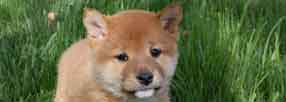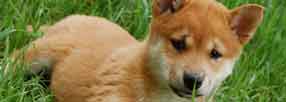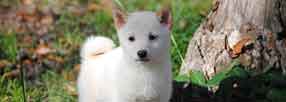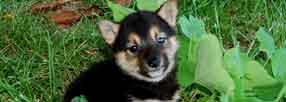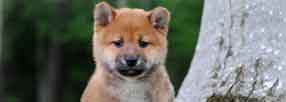|
|
What is a MINI Shiba - (Mame Shiba Inu)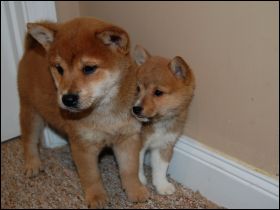 Look at Romeo next to a normal sized 8 week old Puppy Mini Shiba InusWe do not breed adult mini Shiba Inus, they come from regular sized Shiba parents and are not the runt of the litter. By 3-4 weeks they will be only 2 pounds and by 8 weeks they will be 3-4 pounds. Usually we will keep a mini Shiba Inu longer than an average sized shiba, not letting them go to their new home until 10-14 weeks (smaller litters grow and develop faster). About Mini Shiba InusThere is no difference in personality or temperament between the mini Shibas and the regular sized Shibas. The coat colors of the minis are the same as the standard Shiba Inu: red, red sesame, cream, and black and tan. The red color is the most prominent for the Shibas. The mini Shibas are just as loving, friendly, smart, and cuddly as their regular sized siblings. The only difference between minis and regular sized Shibas is the size and weight of the dog. Mini Shibas are ideal for people in smaller apartments or smaller living spaces and do not require as much exercise as the regular sized Shibas. In Japan, some animals bred for miniature size are referred to as Mame-Shiba. The prefix "mame," meaning "bean" in Japanese, is similar to "teacup" prefix used to refer to other miniature breeds. Here is information about Romeo the mini shiba inu
Mini Shiba Inus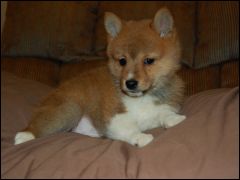 Mini Shiba Inu Puppy 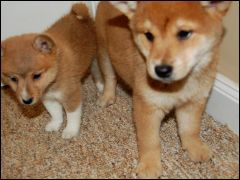 Mini Shiba Inu Puppy 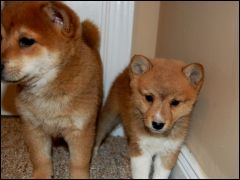 Mini Shiba Inu Puppy |
|
|
|
© 2010-2016 Shiba-Inu-Breeders.com • All Rights Reserved • www.Shiba-Inu-Breeders.com Fair Use Notice: This site may contain copyrighted material whose use has not been specifically authorized by the copyright owners. We believe that this not-for-profit, educational use on the Web constitutes a fair use of the copyrighted material (as provided for in section 107 of the US Copyright Law). If you wish to use this copyrighted material for purposes of your own that go beyond fair use, you must obtain permission from the copyright owner. |




